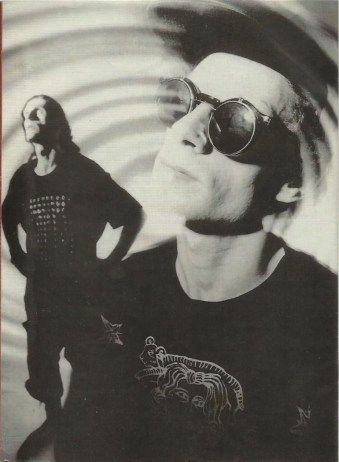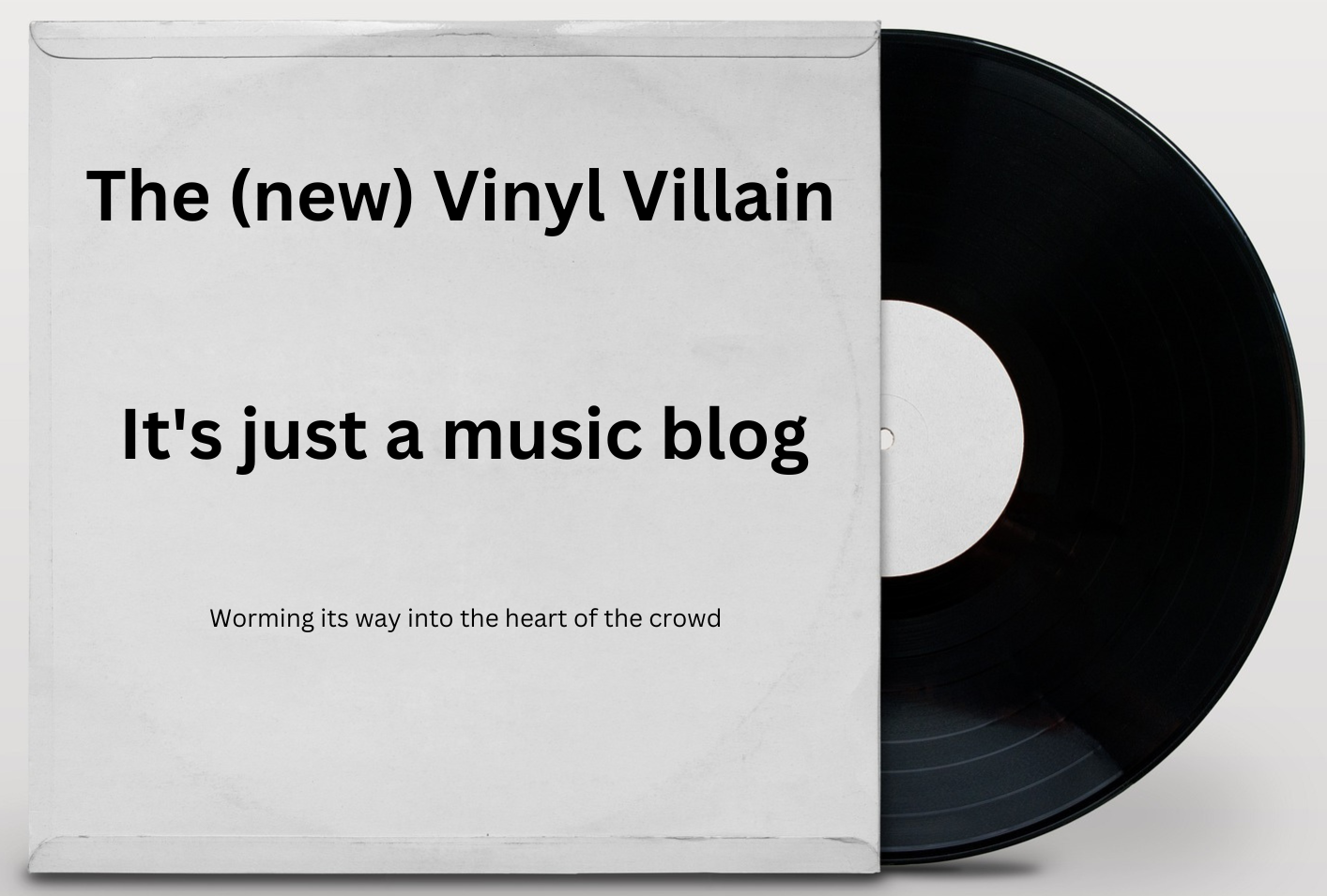
from all music:-
Combining swirling psychedelic rock with hardcore hip-hop rhythms, the Shamen were one of the first alternative bands to appeal to dance clubs as much as indie rockers. Comprised of Colin Angus, Peter Stephenson, Keith McKenzie, and Derek McKenzie, the Scottish quartet had its roots in the early-’80s neo-psychedelic group Alone Again Or. The Shamen officially formed in 1986 and released their first album, Drop, the following year. Drop was filled with varying guitar textures, recalling many late-’60s rock groups. After the record’s release, Angus immersed himself in the emerging acid house/hip-hop club scene, which prompted the departure of Derek McKenzie; he was replaced with William Sinnott, who helped reshape the band’s sound into a dense, rhythmic pulse that relied heavily on samples, drum machines, and loud guitars. The band debuted their revamped sound in 1988 with a stage show that featured sexually explicit visuals along with impassioned political rhetoric. During 1988, Peter Stephenson and Keith McKenzie departed, leaving Angus and Sinnott to perform as a duo.
With their 1989 album In Gorbachev We Trust, the Shamen expanded their following in Britain and began attracting American listeners. The duo continued to concentrate on dance music throughout 1989, adding rappers to their live shows. Just as the band was heading toward mainstream acceptance, Will Sinnott drowned off the coast of the Canary Islands on May 23, 1991. With the Sinnott family’s encouragement, Angus continued the Shamen and the group did indeed begin to score hits, particularly in the U.K. where they amassed five Top 20 singles between 1991 and 1992; “Move Any Mountain (Progen 91)” managed to make it into the American Top 40 at the end of 1991, as well. However, the Shamen fell out of favor during 1993 and their 1994 album Different Drum failed to gain much of an audience. Nevertheless, the group continued to record, releasing Axis Mutatis in 1995, Hempton Manor in 1996, and UV in 1998.
JC adds:-
It’s quite a bizarre and indeed misleading bio on the all music site, given it doesn’t mention the impact and influence of Richard West (aka Mr C) who joined the group in 1990 and took over as lead vocalist in the period when The Shamen enjoyed huge commercial success, with four Top Ten hits in 1992, including a #1 smash with Ebenezer Goode, all from the 1992 album, Boss Drum.
I thought I’d offer up something from the short period when Will Sinnott and Mr C were both in the group. The original version of this song was on the album En-tact, released on 1 November 1990.
mp3: The Shamen – Possible Worlds (Peel Session)
Recorded on 12 February 1991 and broadcast just over five weeks later on 23 March. It was re-broadcast again in early June 1991 as a tribute following the death of Will Sinnott.

The 60s vibe from The Shamen appealled to me. Their heights were reached with this listener with Jesus Loves Amerika. While I was still aware of some later songs, including the indie-dance (?) crossover Move Any Mountain, it didn’t move me. The later Ebeneezer Goode I disliked, intensely. Whatever my own personal view the band did seem to be at the forefront of the late 80s dance scene and should be commended for their innovations at that time.
****
I write here in a small attempt to amend a journalistic wrong. As news of the death of Meat Loaf filtered through the media scrambled for talking heads. They found one in a Guardian journalist – no idea who he was, or indeed, who he thought he was.
I can’t, by the stretch of anyone’s imagination, be described as a Meat Loaf fan but even I know he was far from “peripheral”. His videos dominated early 80s UK soft rock tv and subsequently early MTV – and those record sales, hardly peripheral.
There are a few Meat Loaf songs forever embedded in my ageing brain and I thank Jim Steinman and Meat Loaf for them.
This period Shamen are great, they looked like a new kind of dance/ psychedelia for a while.
I have to agree with SA, The Shamen, from In Gorbachev We Trust, seemed like, were, something new, something different. The next few EPs and singles, leading up to and including the album En-tact were singular moments in Dance Music.